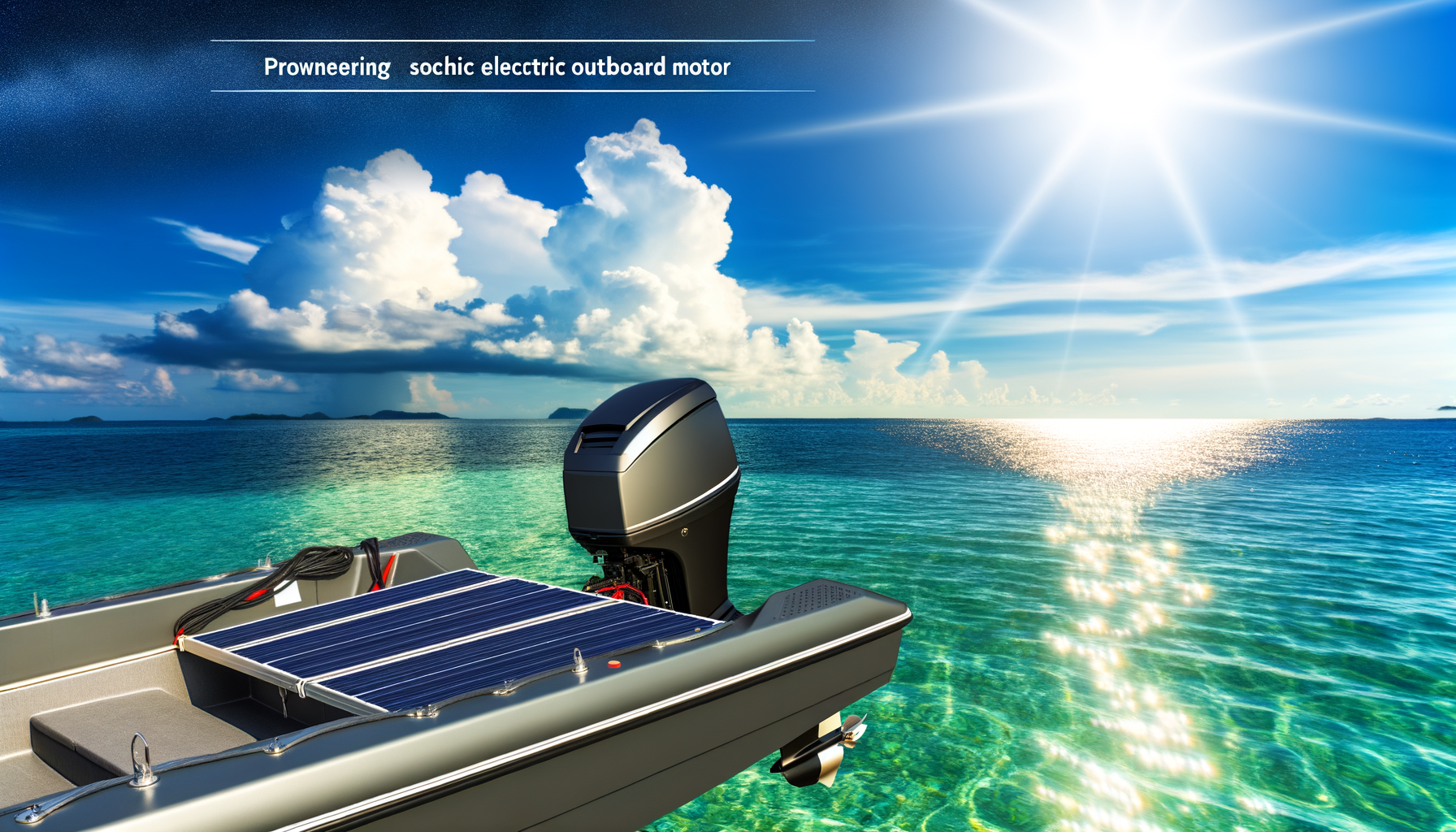Solar-Powered Electric Outboard Motors: Pioneering Sustainable Marine Propulsion
 Pranali Baderao
Pranali Baderao
In recent years, the evolution of electric propulsion has marked a significant turning point in marine technology-specifically within the realm of outboard motors. As the world shifts decisively towards sustainable energy solutions, solar-powered electric outboard motors have emerged as a promising alternative that aligns environmental consciousness with innovative engineering. This article delves into the rise of solar-powered electric outboard motors, exploring their functionality, benefits, challenges, and the future potential within the maritime propulsion market.
Understanding Solar-Powered Electric Outboard Motors
Traditional outboard motors have long relied on gasoline or diesel fuel, which contribute substantially to environmental pollution through greenhouse gas emissions and oil leaks. Electric propulsion, powered by batteries, initially responded to the demand for cleaner alternatives. However, dependence on electrical grids and limited battery life have posed challenges in terms of sustainability and operational range.
Solar-powered electric outboard motors fuse photovoltaic technology with electric propulsion systems. Essentially, solar panels-either integrated into the boat's design or mounted separately-capture sunlight and convert it into electrical energy, which is then stored in batteries to power the electric motor. This setup minimizes charging downtime via conventional power sources and extends operational autonomy, making these motors a truly green alternative for boating enthusiasts and commercial vessels alike.
Key Advantages of Solar-Powered Electric Outboard Motors
Environmental Friendliness: Solar electric motors eliminate emissions driven by fossil fuels during operation. Coupled with renewable solar energy, the entire propulsion process becomes virtually carbon-neutral, significantly mitigating the boating industry’s ecological footprint.
Cost Efficiency: Although the initial investment may be higher compared to traditional motors, solar electric motors reduce operating costs by eliminating fuel expenses and minimizing maintenance. Solar energy is free and abundant, providing long-term economic benefits.
Quiet and Smooth Operation: Electric motors, inherently quieter than combustion engines, are further enhanced by solar powering, providing a serene boating experience without disturbing wildlife or neighboring vessels.
Extended Range and Autonomy: Through continuous solar energy harvesting, boats equipped with solar-powered motors can replenish power during daylight hours, reducing reliance on dockside charging stations and enabling longer trips.
Low Maintenance: Electric motors have fewer moving parts than combustion engines, which reduces maintenance frequency and costs. Solar components, designed for durability, add minimal upkeep.
Technological Innovations Driving Adoption
Several technological advancements have catalyzed the emergence of solar-powered electric outboard motors:
High-Efficiency Solar Panels: Modern photovoltaic cells deliver greater energy conversion rates even in less-than-ideal conditions, maximizing power generation from available sunlight.
Advanced Battery Storage: Lithium-ion and solid-state batteries offer improved energy density, longevity, and charging performance, crucial for reliable propulsion and overnight energy storage.
Lightweight, Compact Motors: Innovations in motor design have yielded powerful yet light units, essential for outboard applications where weight directly impacts vessel performance.
Integrated Energy Management Systems: Sophisticated controllers manage power flow between solar panels, batteries, and motors, optimizing energy usage and ensuring system longevity.
Practical Applications and Market Trends
Solar-powered electric outboard motors are gaining traction across multiple boating sectors, including:
Recreational Boating: Environmentally conscious consumers use solar motors for fishing, leisure cruising, and water sports, appreciating the sustainability and noise reduction.
Commercial Vessels: Operators of small passenger ferries, tour boats, and workboats benefit from fuel savings and reduced emissions, complying with tightening regulations in many ports.
Remote and Off-Grid Operations: Solar-powered systems enable boats operating in isolated or sensitive environments to function with minimal ecological disruption and reduced logistical fuel demands.
Industry analysts forecast compound growth in this segment, driven by increasing environmental regulations, growing consumer awareness, and technological maturation. Government incentives and subsidies for clean energy marine solutions further accelerate adoption.
Challenges and Considerations
Despite promising prospects, several challenges must be addressed for broader commercialization:
Initial Cost and ROI: The upfront cost of solar panels, batteries, and electric motors remains a barrier for some buyers, though costs are steadily decreasing.
Weather Dependency: Solar energy production fluctuates with sunlight availability, necessitating efficient battery systems and supplemental charging strategies.
Energy Density Limitations: Battery storage capacity restricts motor runtime and power output, posing limits for high-speed or long-distance applications.
Infrastructure Development: Charging and maintenance infrastructure for solar electric boats are still developing, requiring further investment.
The Path Forward
Future trends poised to enhance solar-powered electric outboard motors include:
Hybrid Systems: Integration of solar panels with onboard micro wind turbines or fuel cells to diversify renewable energy inputs.
Smart Energy Optimization: AI-driven power management systems that learn usage patterns, weather forecasts, and optimize battery charging cycles.
Material Innovations: Use of flexible, lightweight photovoltaic materials integrated seamlessly into boat surfaces.
Scalability: Designing modular systems adaptable for different boat sizes and usage needs.
Conclusion
The emergence of solar-powered electric outboard motors represents a vital stride towards sustainable maritime propulsion. By harnessing the limitless energy of the sun, these motors offer an eco-friendly, economical, and technologically viable alternative for both recreational and commercial boating. While challenges remain, ongoing advancements and supportive policies illuminate a promising future where clean energy navigates waterways worldwide. For stakeholders in the marine industry, embracing solar electric propulsion not only aligns with global sustainability goals but also unlocks new opportunities for innovation and competitive advantage.
Explore Comprehensive Market Analysis of Electric Propulsion Outboard Motors Market
SOURCE-- @360iResearch
Subscribe to my newsletter
Read articles from Pranali Baderao directly inside your inbox. Subscribe to the newsletter, and don't miss out.
Written by
